|
Limitar tu búsqueda
[+–] Editorial
[+–] Fecha
[+–] Formato
[+–] Idioma
[+–] Tipo de documento
[+–] Tipo de recurso
|

|
|
Is age-grade distortion in Brazil's primary public education system more closely associated to school infrastructure or to family characteristics
Different economic studies have shown the importance of education in improving the quality of life of individuals. Thus, in the 90’s, the public education system was reformed to enhance the quality of public education in Brazil and motivate student interest. This paper participated in this discussion by suggesting an assessment of the impact that school infrastructure and family characteristics...
|
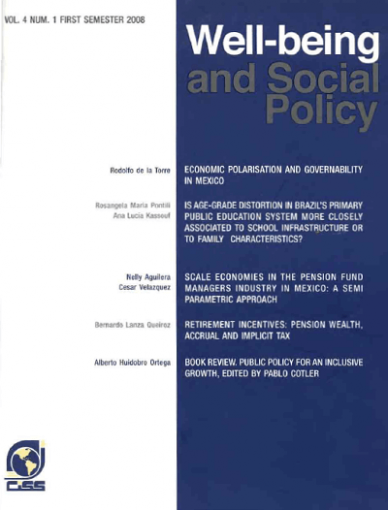
|
|
|
|

|
|
Economic polarisation and gobernality in México
The purpose of this essay is to appraise alternative hypothesis about the origins of recent social revolt in Mexico. It shows that it is not clear that a severe rise in poverty preceded the origins of violent conflict but social polarisation. Therefore, government attempts to deactivate the economic factors that led to social unrest did not necessarily upgrade povertyreduction policies. The...
|
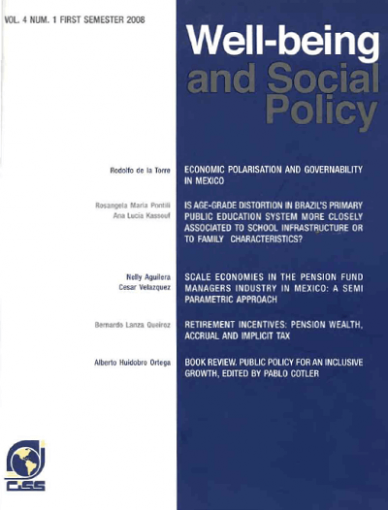
|
|
|
|

|
|
Diversity and equity: Review to indigenous peoples, poverty and human development in Latina America: 1994-2004, edited by Gillete Hall and Harry A. Patrinos
The evolution of specific welfare-related indicators for these indigenous populations during the last decade is the theme of this important book. The study declares to have four guiding questions,
to wit:
1. Have income poverty rates increased or decreased among Indigenous Peoples over the past decade, and what are the main determinants of observed trends?, How does this evolution compare to...
|
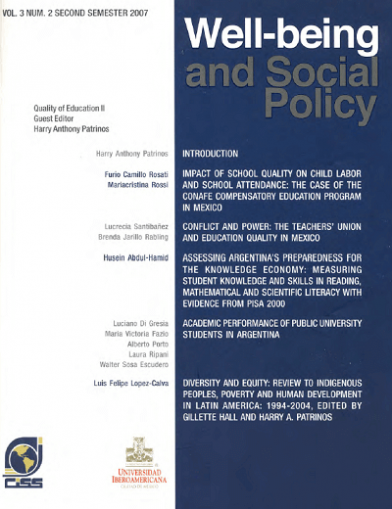
|
|
|
|

|
|
Academic performance of public university students in Argentina
Designing educational policies under limited budgets requires a thorough analysis of the impact of alternative factors on student performance. This work aims at providing an analysis of the relationship between university performance and its explanatory factors. The analysis Will focus on the Argentinean case, using the 1994 Census of Students in National Universities, which includes data on all...
|
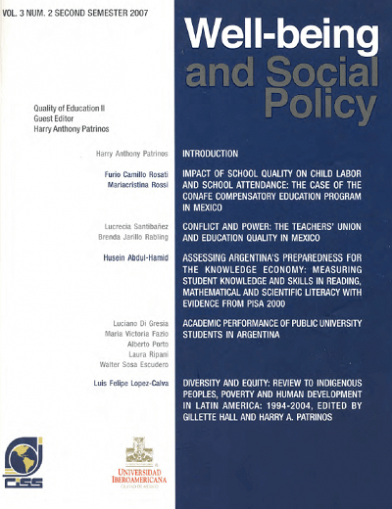
|
|
|
|

|
|
Assessing Argentina's preparedness for the knowledge economy: measuring student knowledge and skills in reading, mathematical and scientific literacy with evidence from PISA 2000
The results of 2000 study of the Programme for International Student Assessment (PISA) show that while Argentinean students performed similar to their peers in most other Latin American countries, they lagged behind all OECD and most of other participating countries. Attention needs to be given to further master the reading, math and science skills that are needed for a knowledge economy; and...
|
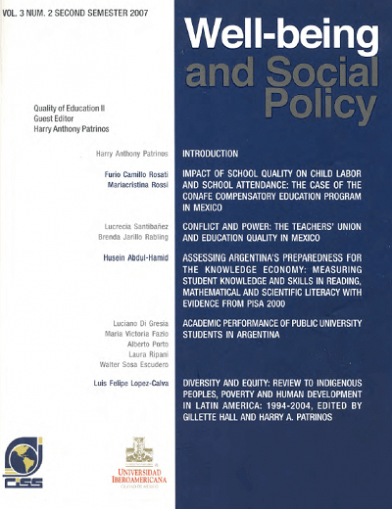
|
|
|
|

|
|
Conflict and power: the teachers' union and education quality in Mexico
The teachers union in Mexico, or Sindicato Nacional de Trabajadores de la Educación (SNTE) represents over 1 million members and is the largest in Latin America. This study uses data from the national student tests administered by the Instituto Nacional para la Evaluación de la Educación (INEE), along with data from the Mexican Ministry of Education and other sources, to investigate the...
|
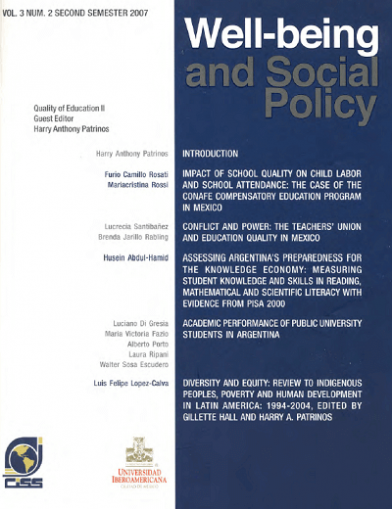
|
|
|
|

|
|
Efectos redistributivos del Programa Nacional de Financiamiento al Microempresario y a la Mujer Rural en México Un estudio con enfoque de género
Se cuantifican los efectos del Programa Nacional de Financiamiento al Microempresarioy a la Mujer Rural (Pronafim) en la generación y redistribución del ingreso en México con perspectiva de género. Para ello, se formula el modelo de multiplicadores contables que recoge endógenamente las relaciones ingreso-gasto entre: 31 sectores económicos; dos tipos de hogares, los encabezados por hombres y...
|
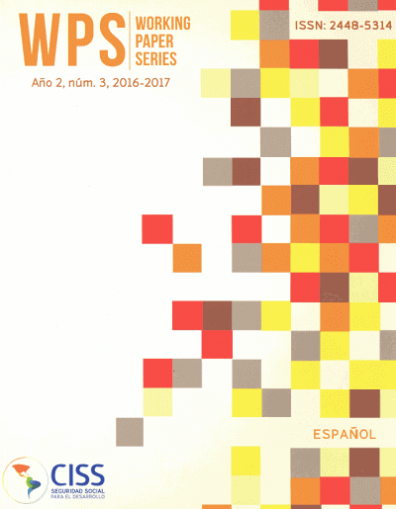
|
|
|
|
|